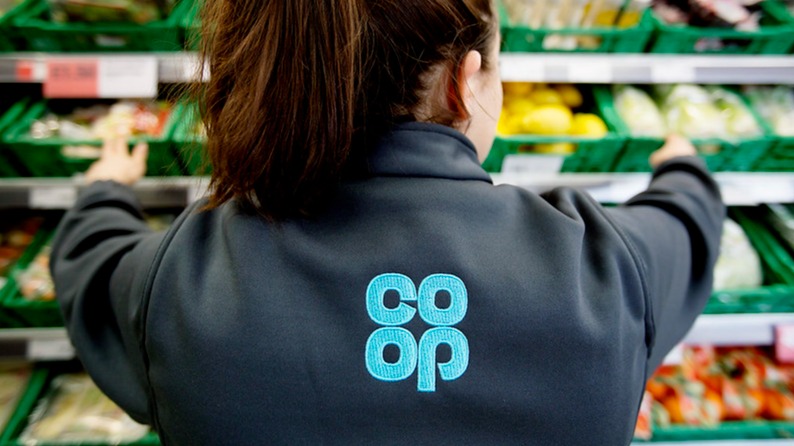The Co-op has said its stock ordering system is back online after facing a cyber-attack almost two weeks ago.
The company added that all orders have now been switched back to its normal supply processes and systems.
In an update released on Wednesday, a spokesperson for the retailer said that there would be improved stock availability across its food stores and online from the weekend.
They also said that the business is working closely with suppliers to restock its stores.
The statement comes after reports that some of its stores have had empty shelves as a result of the third-party cyber incident.
The Co-op currently operates 2,500 food stores across the UK which employ more than 62,000 people.
“All forms of payments including contactless, and chip and pin are working across our entire store estate,” continued the spokesperson.
The company said that it is in the recovery phase following the hack, taking steps to bring its systems gradually back online in a safe and controlled manner.
The statement comes after Marks & Spencer (M&S) revealed that some personal customer data was stolen during a cyber-attack that has crippled its online operations for more than three weeks.
Some experts have suggested that the cyber-attacks, along with a similar incident that took place at Harrods, are part of a co-ordinated attack on the UK retail industry.
M&S began experiencing problems with its systems on 25 April, initially affecting in-store payments before spreading to other parts of the organisation. The retailer has been unable to take online orders since then as it attempts to resolve the issues.
Last week, the Co-op reportedly attempted to circumvent shortages in remote communities by diverting its food and drink supplies to stores in more isolated locations as the retailer continues to grapple with the effects of a cyber-attack which took place last week.
Image credit: The Co-op
Latest News
-
Amazon considers largest contribution to OpenAI's $100bn fundraising round
-
Google agrees to pay $135m over Android data collection claims
-
UK government to launch centre for AI measurement
-
HSBC rolls out new tax tool for sole traders as digital rules approach
-
Lloyds Banking Group doubles AI value target to £100m in 2026
-
Tesla to end Model S and Model X production as Musk shifts focus to robotics
The future-ready CFO: Driving strategic growth and innovation
This National Technology News webinar sponsored by Sage will explore how CFOs can leverage their unique blend of financial acumen, technological savvy, and strategic mindset to foster cross-functional collaboration and shape overall company direction. Attendees will gain insights into breaking down operational silos, aligning goals across departments like IT, operations, HR, and marketing, and utilising technology to enable real-time data sharing and visibility.
The corporate roadmap to payment excellence: Keeping pace with emerging trends to maximise growth opportunities
In today's rapidly evolving finance and accounting landscape, one of the biggest challenges organisations face is attracting and retaining top talent. As automation and AI revolutionise the profession, finance teams require new skillsets centred on analysis, collaboration, and strategic thinking to drive sustainable competitive advantage.
© 2019 Perspective Publishing Privacy & Cookies





.jpg)




Recent Stories